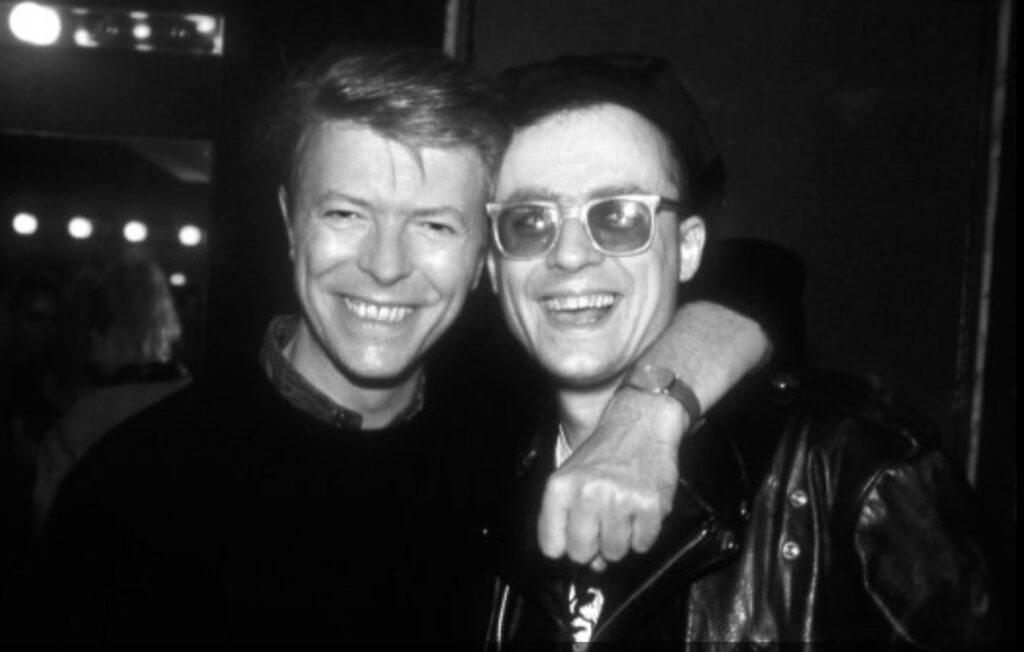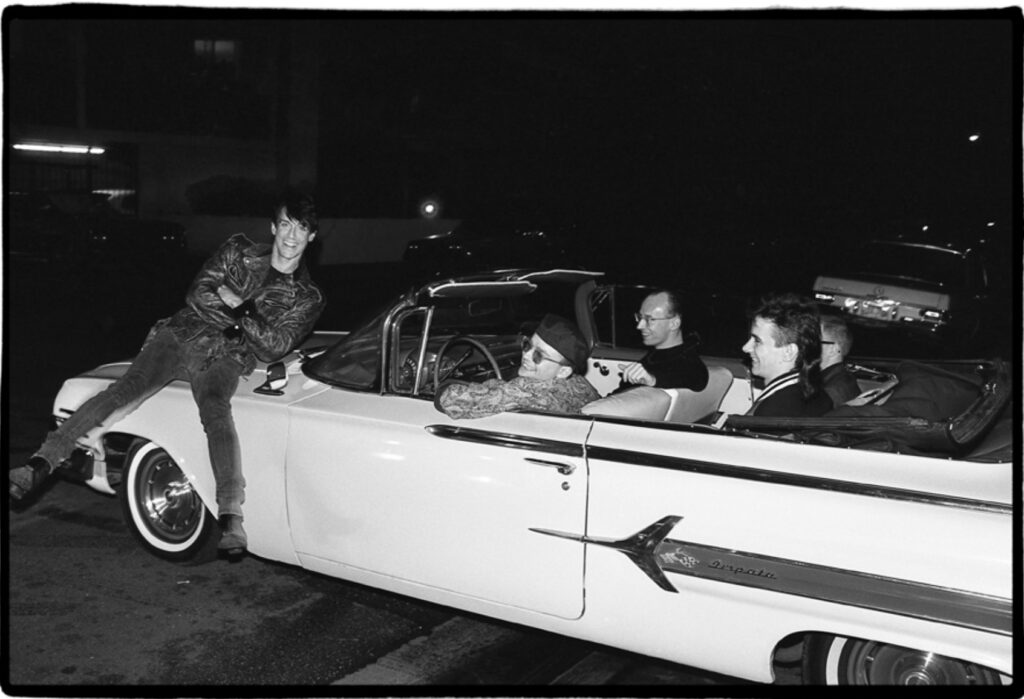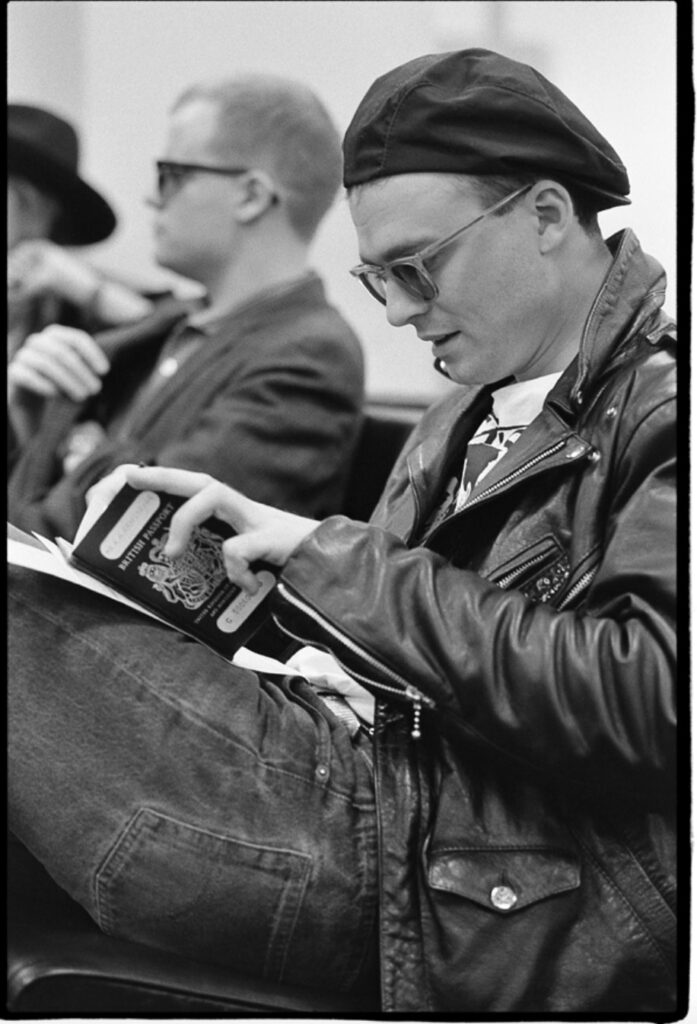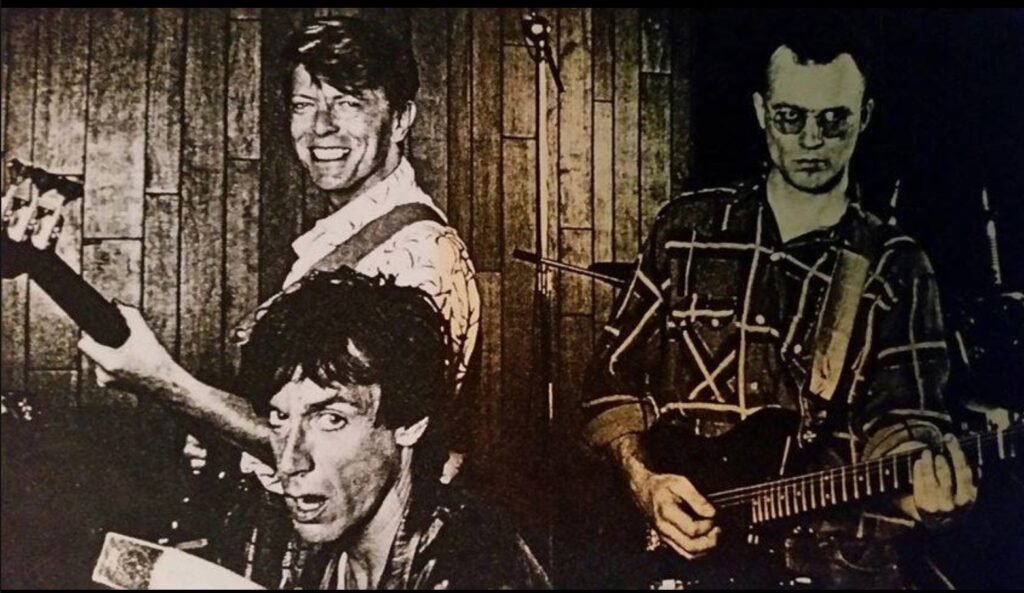
Sideman and Collaborator to David Bowie, Iggy Pop and Morrissey Goes Solo
By DONNA BALANCIA
Kevin Armstrong isn’t a household name, but he’s probably in your house. With his new solo album, Run, the sideman to rock’s most notorious and beloved, proves he’s worthy of joining those ranks in his own right.
The album is out March 22.
Armstrong has played side by side and has been the trusted guitarist to David Bowie, Morrissey, Thomas Dolby, Iggy Pop and too many others to mention. To say that he’s picked up a thing or two from these rock stars would be condescending and likely incorrect. While listening to Run, it’s discovered to be the other way around. Run is an album for the ages, worthy of many listens and can’t be recommended highly enough.
The title track “Run,” has a distinctly rock feel to it, blending romance and a hint of what’s to come. Armstrong is like a vocal chameleon, changing pitch and style as the emotion of the song dictates. He takes on an Iggy Pop-style of voice in this song, but it’s the first of many styles yet to come on this dynamic treasure of an album. Bowie so loved the song, he adopted “Run” for himself and it was the title track for the album by his band, Tin Machine. He has a co-writer credit on the song.

The second track, “Where Does The Time Go?” is a samba-esque jazzy and melodic romp through life’s philosophy. Don’t settle in life, Armstrong seems to say. Make the most of the time we have here on Earth. “Where did I put my dreams?” he asks. But in his case, Armstrong seems to be living his dreams. But also, he has learned to go with the flow, working with dynamic front men like Bowie, Morrissey and Pop.
“Dog At My Giro” is a reflective piece, not unlike the sounds of Bowie’s Black Star album. It’s got that same freaky tone, contrasting the swelling orchestration against some immense disappointment.
“Leucocytes of Love” sounds a lot like a favorite Long Island band of the early 1980s, The Good Rats. But that’s no surprise because Pepi Marchello and company were influenced by Bowie, who was influenced by Armstrong in turn. “Put aside that gun you won’t shoot me now cause I know when push comes to shove Leucocytes of Love you will suck them down.”

“The Way of All Flesh” is one of the most far out and trippy songs ever. Like a sailor who has gone beyond and out to another galaxy, the song reflects on life. It blends a sailing-sounding song that you would expect to hear in the Northeastern U.S. set against a jazz framework moving down the keyboard in minor scales, with beautiful acoustic guitar and unconventional chords.
“On Beachy Head” is a slow tribute that is reminiscent of a sad 1930s song being sung through an old fashioned megaphone, perhaps a tribute to a veteran.
“Feel This Jones” is a great upbeat song, and the vocals are particularly good on this song. In its simplicity this still comes across as a strong rock song.

“He Knows I’d Love to See Him” has a familiarly haunting sound, and it could be said everyone has been influenced by Led Zeppelin, maybe even Armstrong. It’s apparent that Armstrong gives a tip of the hat the old “Stairway to Heaven” – era Zepplin. Morrissey co-wrote.
“Clean” is just how it sounds. It’s sharp and full with sparce instrumentation. It goes to prove that a good song can make its point without being heavy. This song is as light as a feather, and bears a resemblance to the 1970s era songs of Loggins and Messina or CSNY. The only difference is Armstrong was with the rabble rousers at the time, and not the pop-hippie folkdom.
“Outside” is notable for its helter skelter wild saxophone by Terry Edwards and Armstrong’s great vocal work. It’s the part of the album where Armstrong initiates his goodbyes in a slow, Bowie-esque crawl. It’s almost as if something is coming up out of the darkness to grab the listener. It also goes back to the theme of taking advantage of the moment. Bowie has a co-writer credit and adopted the song for Tin Machine.

The record wraps up with “Oh Phony,” and conveys a feeling of — what else — everything will be OK. The song starts off like a Hot Tuna song and a simply unorthodox riff. Only this is a song that sounds like the baby of Morrissey and Led Zepplin together. Morrissey actually has a co-writing credit on this one. Lyrically, “Oh Phony” addresses all those people who can’t be real. This is a trademark for Armstrong. Armstong’s emotion evoking melodies and unique chord changeups convey a jagged outline for emotions which used to be merely contained in the shape of heart.
It’s amazing to know that great veteran talent in rock and roll still exists and is, in some special cases, evolving beyond the memories and the “days gone by.” And maybe it actually requires an experienced talent to know how to blend the successes of the past, color them up and cast them into a light that can allow people to dream once again.

‘Run’ by Kevin Armstrong – March 22, 2019
Tracklist:
- Run
- Where Does The Time Go?
- Dog At My Giro
- Leucocytes of Love
- The Way of All Flesh
- On Beachy Head
- Feel This Jones
- He Knows I’d Love to See Him
- Clean
- Outside
- Oh Phony
CD Pre-Orders with Message to Kevin’s FB page
Listen to ‘Run’ at Kevin Armstrong’s website
Recorded in London and East Sussex at Squirrel Mountain Studio and Wishing Tree Studio.
Produced and Mixed by Kevin Armstrong
Kevin Armstrong
All instruments played by Kevin Armstrong except:
Mat Hector, cajon on 2, drums on 4, 5 and 8
Martin Barker, drums on 9, calabash on 2 and 9
Terry Edwards, saxophones on 10, Paul Cuddleford guitar solo on 10
Mastered by Dick Beetham
Cover art by Fox Campion-Armstrong and Lynsey Hayton
Photos by Paul McAlpine
Layout by Jonas Larsson
(This review originally ran on March 5, 2019)
Kevin Armstrong’s song, “Run” – Tin Machine
Oh Phony – By Kevin Armstrong and Morrissey



